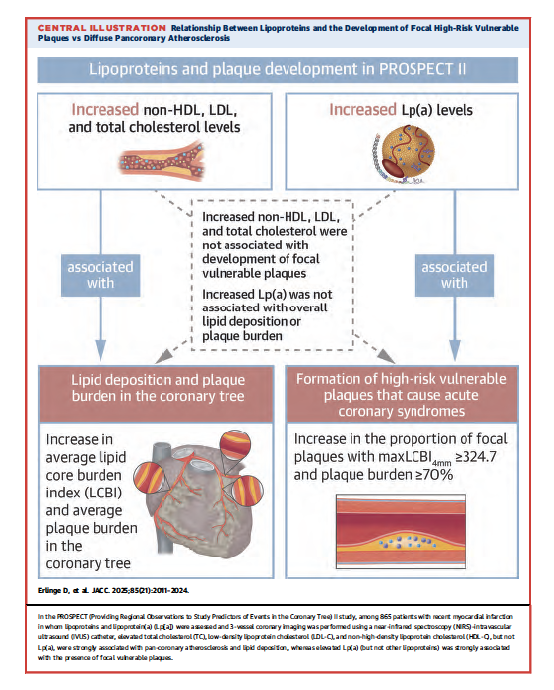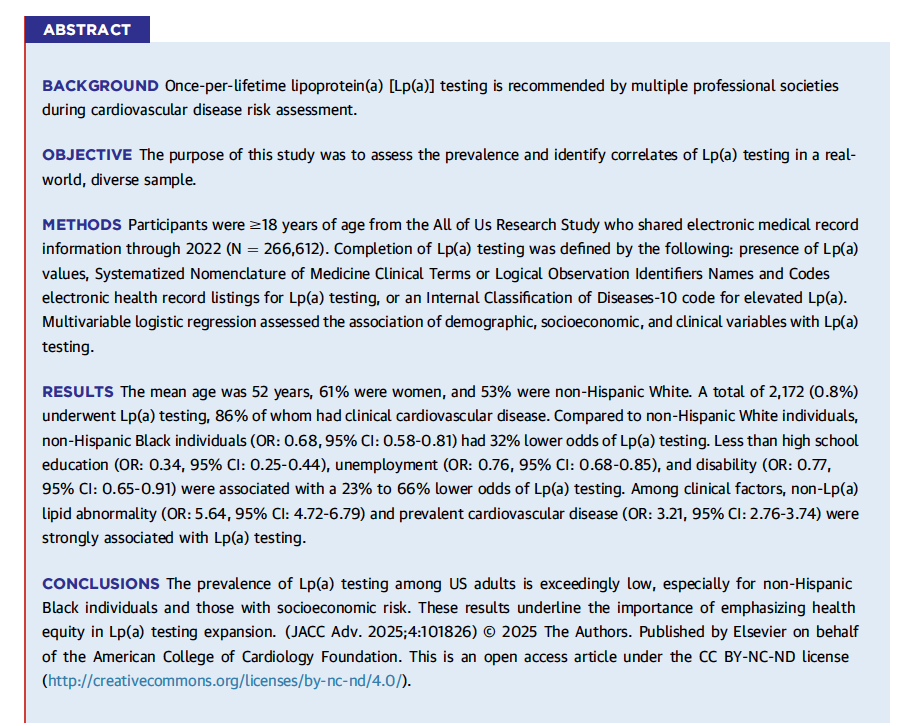
Sam Tsimikas, MD
@lpa_doc
Professor Cardiology - UC San Diego. @UCSDHealth, @stsimikas, @OxPL_apoB. Educational forum on Lp(a) and related areas-unable to give personal advice on twitter
ID: 790971021830467584
25-10-2016 17:39:21
4,4K Tweet
13,13K Followers
89 Following


Glad we have a fan to review our old papers Sam Tsimikas - but you do need to place citations of the sources in all your tweets, otherwise no one will know where they come from and it will diminish their impact. That being said, this is a counterintuitive finding and needs proper





We have a new Lp(a) paper, led by David Erlinge from PROSPECT 2 using IVUS/NIRS. It shows high Lp(a) associates most with vulnerable plaque characteristics, whereas LDL-C with plaque burden. Lp(a) was measured by our UC San Diego Cardiology assay, the only Lp(a) assay I am aware of that is









New Lp(a) paper led by Alexander C. Razavi from All of US. Long way to go in getting everyone an Lp(a) test.




This is a good topic for Sat AM Sam Tsimikas Class. In fact, Lp-PLA2 inhibitors block OxPL from degrading, it was predicted to fail. Pelacarsen lowers OxPL-apoB 88%, and so does olpasiran. But a more direct way is in the works.






